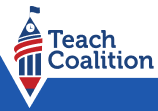Teach NYS, a project of the Orthodox Union, was formed in 2013 with a singular purpose: securing government funding for nonpublic schools. Through grassroots advocacy, Teach NYS says its secured $450 million in state funding for New York nonpublic schools. This year’s budget includes $15 million for nonpublic schools to hire Science, Technology, Engineering, and Math (STEM) teachers – a $10 million increase over last year, when the program began. It also includes $15 million to strengthen security in nonpublic schools.
What exactly is grassroots advocacy? According to Teach NYS Grassroots Engagement Director Annie Watman, it means getting Jewish community members to register, vote, and speak
In 2016 and 2018, Teach NYS ramped up its voter registration and “Get Out the Vote” activities. They educated day school parents through partnerships with over 50 yeshiva day schools, and sent tens of thousands of phone calls reminding Jewish parents throughout the state to register and vote. Last year, they launched an online platform using Turbovote, which allows community members to register and get reminders to vote on their phones, tablets, or computers.
In addition to voting activities, every year Watman and the Teach NYS grassroots team organize a Mission to Albany. Teach NYS brings hundreds of community members, teachers, rabbis, and students meet with their state legislators and request funding for day schools. “Legislators are bombarded all day by lobbyists and political operatives,” Watman said, “so legislators pay close attention when their constituents come in-person to explain why our schools need state funding.”
This annual event complements Teach NYS’ Ambassador Network program, which pairs community members with legislators to build lasting, impactful relationships. “Teach NYS Ambassadors give a human face and voice to New York State’s 1.7 million Jews, which is crucial for showing legislators that we’re more than just another interest group,” Teach NYS Director of Lay Network Development Avi Spitzer said.

Joey Braha is another one of Teach NYS’ roughly 50 Ambassadors; he is paired with State Senator James Skoufis, whose district in Orange County encompasses the heavily Satmar Hasidic village of Kiryas Joel. Braha said school visits by legislators go a long way towards dispelling myths about yeshiva day schools: that Jewish schools are monolithic, ignore secular education, or are for wealthy families only.
“Elected officials may have a certain image of how a Yeshivah operates – from the students to the administration to the curriculum,” Braha said. “That’s why it’s imperative we take the initiative and show legislators how a modern Yeshivah functions. Once they witness firsthand that our children are well-versed not only in Judaic studies but also in STEM, English Language, and the arts, then they generally understand what we are looking to accomplish with their help.”
“It is crucial to have strong relationships with elected officials,” he added, “because that’s how we communicate the centrality of Jewish schools to our communities. Fostering those relationships is what the Teach NYS Ambassador program is all about”
Joey Oved, another Teach NYS Ambassador, said building relationships with legislators is eminently doable. “It’s meeting with your assigned legislator once or twice per year, making a phone call or email every few months, and hosting them at your home or school once per year.” All told, Oved said, it’s an investment of about 5-10 hours per year.
Each hour Ambassadors invest has an outsized impact thanks to the hard work and expertise of the Teach NYS staff. “You don’t need to be a political genius or formulate the strategies because [Executive Director] Maury Litwack, Annie Watman, and Avi Spitzer have already figured that out,” Abe Sultan said, referring to the Teach NYS team.
According to Abe, Teach NYS staff will pair Ambassadors with a legislator, coach them on the policies, suggest when and where to schedule school visits, and give regular reminders to 
Joey Oved said Ambassadors’ relationships with elected officials, like all meaningful relationships, should be long-term. For years, Oved has had a relationship with Tish James, former NYC Public Advocate. James’ help was instrumental in a successful push last year to create a $1 million kosher free lunch pilot program for public and nonpublic school students. Last month, James took office as the New York Attorney General, and Oved said he looks forward to continue working with her for many years to come.
According to Avi Spitzer, the high impact of the Teach NYS Ambassador Network program means they are always looking for more Ambassadors. “If you’re not sure about becoming an Ambassador, then join our Mission to Albany on March 12, 2019 and try it out for yourself,” Spitzer said.
The Missions to Albany make a huge difference, Joey Braha said. He related how two years ago the Teach NYS group was addressed by Governor Cuomo, who took the opportunity to announce $25 million in security funding for nonpublic schools. “It’s important to understand that the legislators in Albany, along with their staff, are keenly aware of the Governor’s whereabouts at all times,” he said. “When Cuomo speaks to our group as he did then, that puts us on the map. I’m not aware of any other school group doing this.”
And the fact that many participants choose to become Ambassadors is a nice bonus, Spitzer concluded.
For more information please visit teachnys.org

